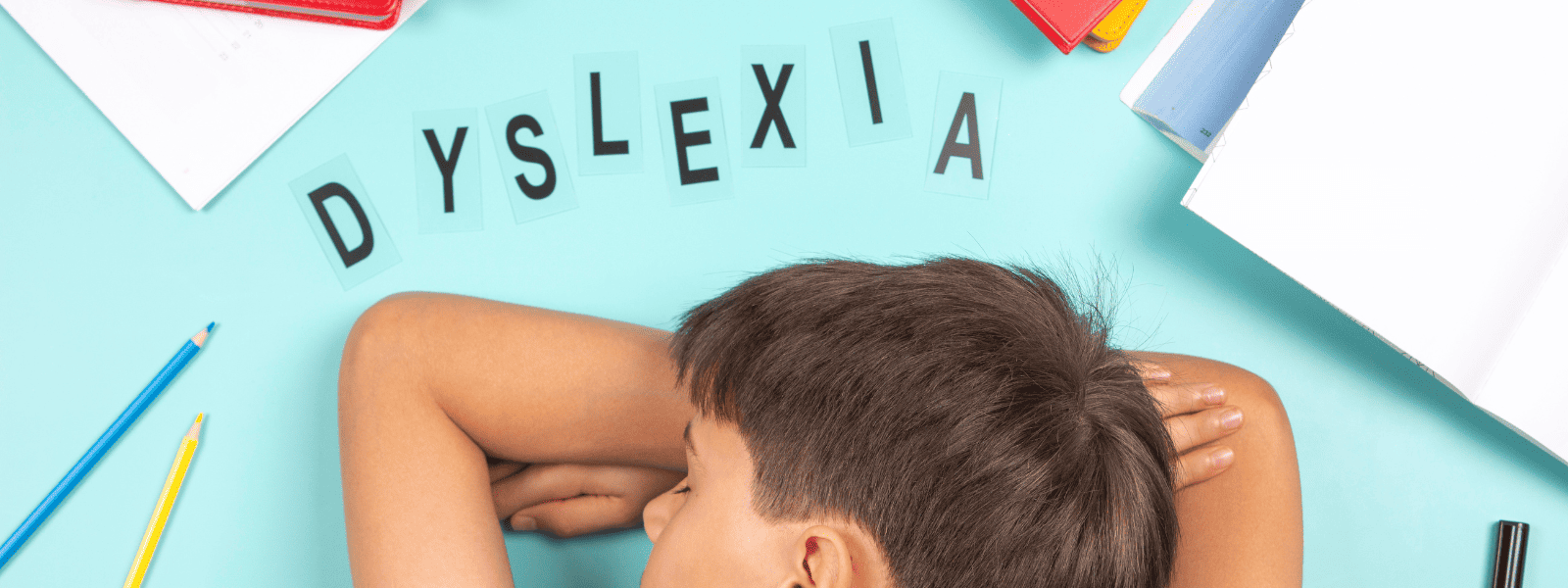What Are Types of Dyslexia?
When kids struggle with reading, you may begin to wonder if they have a reading disorder, commonly known as dyslexia. There are a lot of misconceptions about dyslexia, including that every person with dyslexia struggles the same way. However, the reality is that there are many different types of dyslexia that are linked with different skill weaknesses and struggles that are the real root cause of the problems with reading.
4 Common Types of Dyslexia:
This is not an exhaustive list, however most individuals with dyslexia fall into one of these four main types
Phonological Dyslexia
This is the most common of the types of dyslexia. In phonological dyslexia, the learner struggles to recognize and identify sounds, patterns, and sound out words. For kids with phonological dyslexia, auditory processing is often the weakest cognitive skill that drives this struggle.
Some signs of phonological dyslexia include:
- Struggling with rhyming or recognizing patterns in words
- Inability to connect letters with the sounds they make
- Trouble attacking new words and sounding them out
- Poor spelling
- Inability to break down words into smaller parts or individual sounds
Rapid Naming Dyslexia
This is a different type of dyslexia where there’s a struggle to quickly recall letters, words, shapes, colors, numbers, etc. For many students who can’t seem to get the word out, there is a deficit in processing speed or working memory, but in some cases there are neurological differences that are behind this struggle. Rapid naming dyslexia often looks like:
- Trouble recalling the correct word in conversation or on school assignments
- Frequently substituting (or skipping) words
- Slowness in response time during oral conversations
- Slow, laborious reading and writing
- Making up words to use in place of real words
- Replacing words with gestures, objects, tantrums, or other coping mechanisms
Surface Dyslexia
In surface dyslexia, individuals can often sound out words but they struggle to recognize whole words on the page. Many kids who struggle in this way have weaknesses in visual processing and memory. This impacts reading fluency (the ability to recognize a word at a glance without having to sound it out every time it occurs) as well as learning words that cannot be phonetically sounded out.
Surface dyslexia usually presents as:
- Struggling with sight words or words that are not easily sounded out
- Slow reading (stopping to sound out every word)
- Difficulty reading or spelling words that don’t look how they sound
- Forgetting a word almost immediately after they’ve figured it out
Visual Dyslexia
This type of dyslexia is what it sounds like: what the individual sees on the page is overwhelming or confusing. They struggle to recognize letter shapes, switch letter orders, or forget where they are in a text. Often issues with visual processing, attention, working memory, and processing speed can be at play here.
Many people with visual dyslexia struggle with:
- Words appearing blurry, like they’re “moving”, or coming in and out of focus
- Trouble with tracking (frequently jumping up or down a line, skipping or reversing words, etc.)
- Keeping their place in a text without the use of a finger or some other aid
- Headaches or eye strain that only happen during reading tasks
- Reversing similar letters (like b/d) or reading certain letters in a word out of order (god→dog)
What Do You Do If You Suspect One of These Types of Dyslexia?
First off, you should know that kids with learning disabilities and kids who are neurotypical all need the same cognitive foundation in order to learn to read. If one of these skills is weak, it may present as a major issue when only 1-2 skills could be really holding them back.
In some cases, students with a reading disorder may struggle with ALL of these foundational cognitive skills, which means no matter how much tutoring, re-teaching, and practice they engage in, reading will continue to be a struggle.
If you approach your child’s reading struggles seeking a diagnosis or label, that only goes so far. You want to dig deeper to look at the underlying skills that are really driving their issues with reading or spelling.
At LearningRx, we don’t diagnose or treat dyslexia but we DO target the cognitive skills your brain needs to have in order to learn (and read) effectively. We’ve worked with over 2,000 school-age learners with dyslexia and they’ve achieved an average gain of 3.6 skill years in ALL core cognitive and reading skills. Beyond that, these students improved by an average of 5.7 skill years in auditory processing (one of the most important things that must be in place for effective reading!)*
Helping your struggling reader needs to start with their brain: finding which skills are weak and how you can strengthen them.
Click here to learn more about our approach to Dyslexia help >>
*Results from surveys and studies of past clients. Outcomes may vary.







